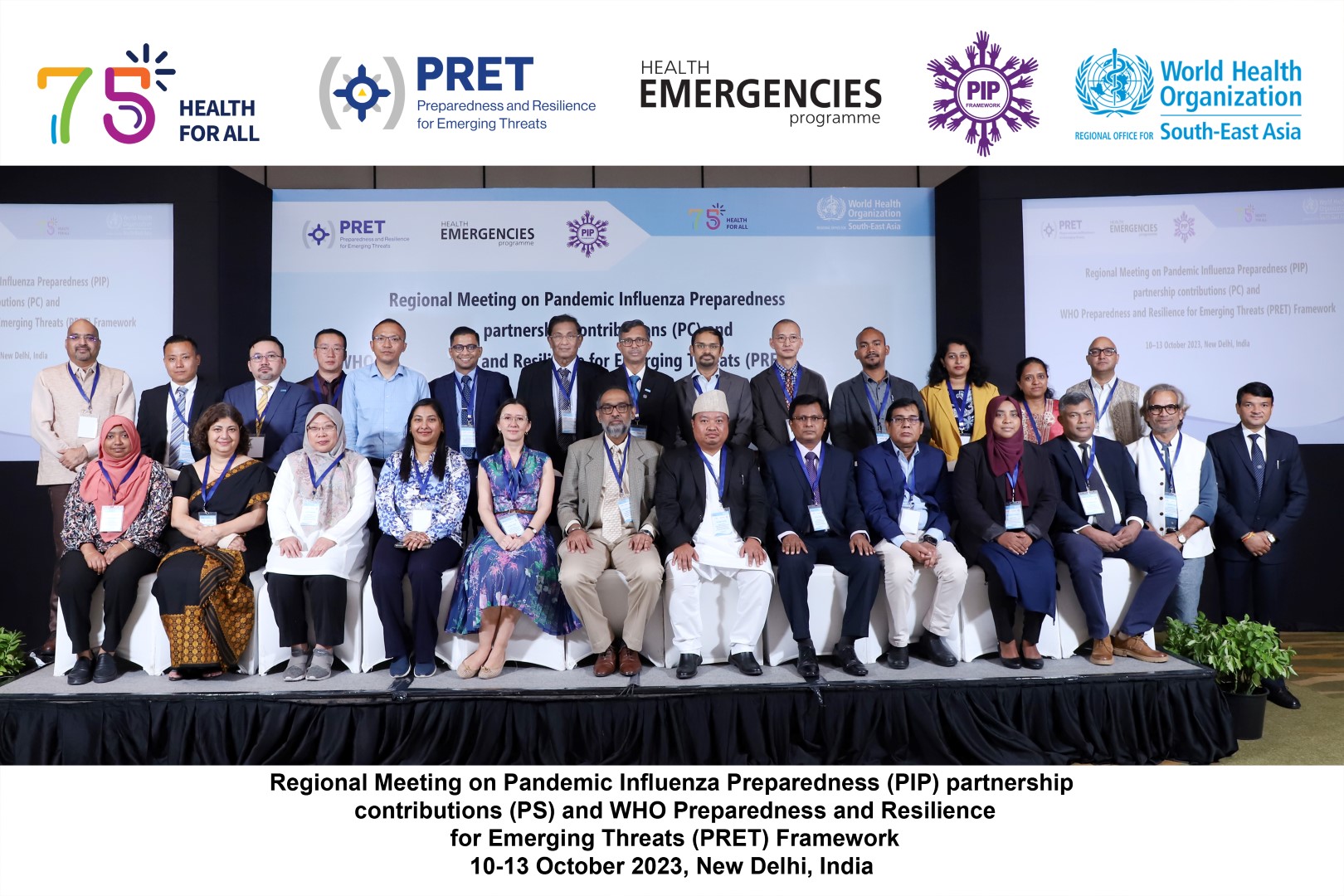In 2011, the World Health Assembly unanimously adopted the Pandemic Influenza Preparedness (PIP) Framework. The PIP Framework outlined the process for sharing of influenza viruses with pandemic potential in a systematic, rapid, and timely manner with the Global Influenza Surveillance and Response System (GISRS).
As a part of the PIP framework, two benefit-sharing mechanisms have been established: one is a contracting mechanism to enable WHO to secure advance access to specific percentages of pandemic response products such as vaccines and antivirals; the other is a yearly PIP Partnership Contribution (PC) that is paid to WHO by influenza vaccine, pharmaceutical and diagnostic manufacturers that use GISRS. In part, the latter contributes to strengthen pandemic preparedness capacities in countries.
The PIP Framework Partnership Contribution High-Level Implementation Plan (HLIP) outlines the strategy for strengthening global pandemic influenza preparedness using PIP-PC. Seven Member States (MS) in WHO’s Southeast Asia Region completed the implementation of the HLIP- II from 2018-2023.
Subsequently, the HLIP III was developed to guide capacity building for improving global pandemic influenza preparedness from 2024 to 2030. HLIP III addresses gaps in pandemic influenza preparedness by taking into consideration the lessons learned from the response to the COVID-19 pandemic, the gains made over time including from previous HLIPs, and the broader programmatic and policy context.
Against this background , Ministry of Health and/or WHO Country office focal points from 10 MS in WHO’s South East Asia Region who became eligible to receive PIP-PC funds under the HLIP III ( Bhutan, Bangladesh, India, Indonesia, Maldives, Nepal, Sri Lanka, Timor Leste, Myanmar and DPR Korea) with other stakeholders such as PIP secretariat, global and regional output leads of HLIP-III in WHO and independent technical advisory group members participated in the Regional meeting on PIP partnership contributions (PC) at New Delhi, on 10-11 October 2023.

The meeting offered the opportunity to (a) present the WHO’s new PIP-PC HLIP-III (2024-30), (b) review SEAR country specific PIP biennium work plans (2024-25) and (C) discuss how external experts/centres of excellence could support countries to achieve quality HLIP-III outcomes.
Additionally, it reviewed implementation of PIP-PC biennium workplans (2022-23) in SEAR and understood issues, challenges, and compliance gaps. Subsequently, the meeting participants collectively developed recommendations for better and effective HLIP-III work plan implementation in the 2024-25 biennium.
